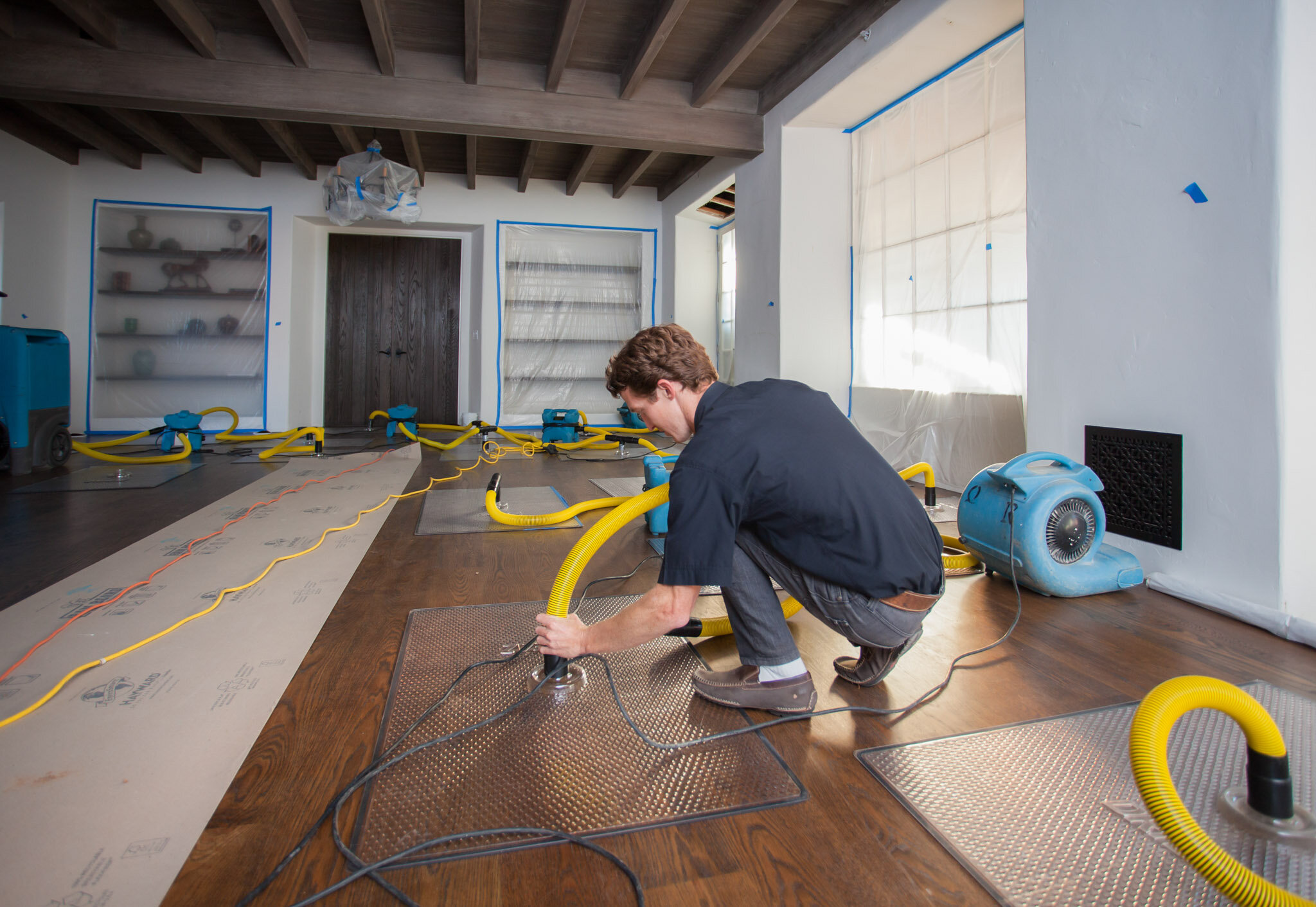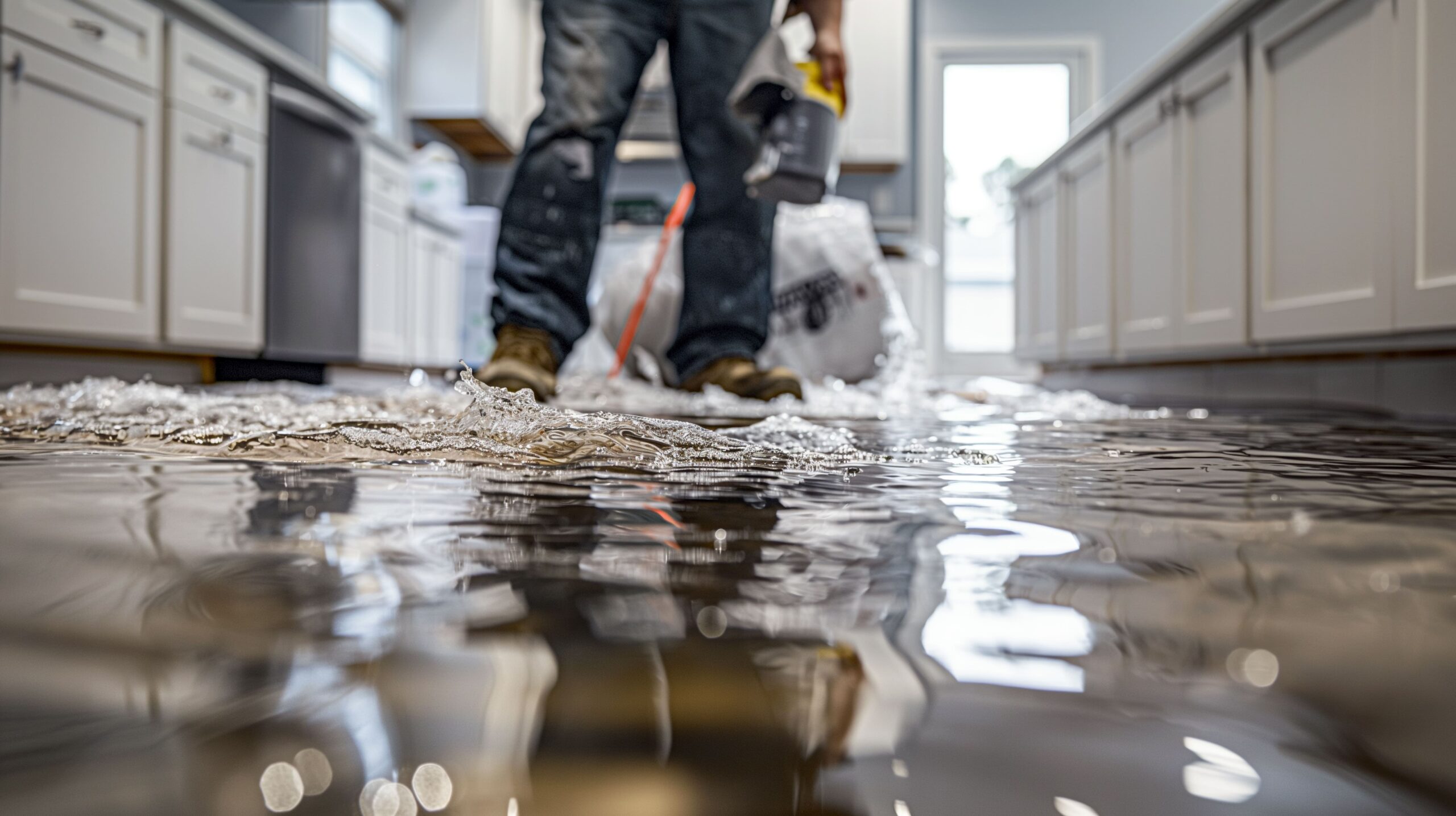Step-by-step look at the Flood Cleanup Services workflow
Water Damage Restoration 101: Understanding the Process and Expense
Water damage can strike all of a sudden, leaving house owners in a state of complication. Comprehending the repair process is necessary for efficient healing. From reviewing the damage to selecting the appropriate service provider, each action influences the general end result and expense. Factors such as the kind of water damage and urgency likewise play a substantial duty. What are the specific methods made use of in remediation, and just how can one prepare for possible expenditures?
Types of Water Damage

Initial Evaluation and Inspection

Water Extraction Methods
Following the preliminary assessment, reliable water extraction strategies are utilized to reduce damage and prevent more issues. These strategies involve using specialized devices such as submersible pumps and industrial-grade vacuum cleaners - Mold Remediation After Water Damage. The selection of technique depends on the quantity of water existing and the type of products influenced. For standing water, submersible pumps are generally made use of for quick elimination, while vacuums are perfect for removing water from rugs and upholstery. In addition, progressed techniques like water extraction floor coverings might be employed for hard-to-reach areas - Flood Cleanup Services. The goal is to remove as much water as possible, reducing the potential for mold growth and structural damage. Prompt and efficient water extraction is necessary in the general water damage repair procedure
Drying Out and Dehumidification Process
As soon as the water removal is total, the drying and dehumidification process becomes important to bring back the afflicted area. This stage generally uses industrial-grade dehumidifiers and air moving companies to properly reduce wetness levels. The dehumidifiers pull in damp air, removing excess humidity, while air moving companies distribute air to accelerate dissipation. Surveillance equipment is usually utilized to track humidity and temperature degrees, making certain perfect drying problems. The period of this procedure can vary depending on the degree of the water damage and environmental elements. It is crucial to thoroughly completely dry all affected products, including wall surfaces, floor covering, and home furnishings, to avoid mold and mildew development and structural damage. Appropriate implementation of this action is critical for an effective repair outcome.
Cleansing and Sanitizing Affected Locations
A thorough initial analysis and evaluation of influenced areas is important to determine contamination levels as soon as the drying process is complete. Flood Cleanup Services. Reliable cleaning strategies and suitable products need to after that be utilized to get rid of debris and discolorations. Finally, sanitization and sanitation approaches are necessary to ensure that dangerous microorganisms are eliminated, recovering the area to a secure problem
Initial Evaluation and Inspection
Prior to beginning any kind of restoration efforts, a complete initial assessment and evaluation of the influenced locations are essential for efficient cleansing and disinfecting. This procedure includes recognizing the degree of water damage, identifying the source of the water invasion, and examining the materials affected. Assessors normally try to find signs of mold and mildew growth, structural integrity issues, and harmed possessions. The analysis also includes checking moisture degrees utilizing click here specific devices to ensure no surprise water pockets stay, as these can bring about more difficulties. Documenting the findings is crucial for planning the next action in the restoration process. An in-depth first analysis makes it possible for repair specialists to create a targeted strategy for reliable cleaning and sterilizing, inevitably minimizing damage and wellness dangers.
Cleaning Strategies and Products
Efficient cleaning and sanitizing of water-damaged areas call for a variety of methods and items customized to the certain materials affected. For permeable surface areas like drywall and carpeting, extraction techniques are necessary to remove excess dampness, adhered to by deep cleansing with specialized detergents. Non-porous products such as floor tile or metal can be cleaned making use of commercial-grade cleansers that efficiently remove contaminants. Vapor cleansing is another reliable method, particularly for carpets and furniture, as it makes use of high temperature levels to eliminate microorganisms and mold and mildew (Flood Cleanup Services). Additionally, environment-friendly items are significantly prominent for their safety and security and effectiveness - Water Damage Restoration. Ultimately, selecting the ideal cleansing methods and products not only assures immediate tidiness yet additionally help in preventing more damage and health dangers connected with water breach
Sanitization and Disinfection Methods
When dealing with water damage, correct sanitization and sanitation techniques are necessary to assure the safety and security and health and wellness of the affected environment. After preliminary cleaning, surface areas have to be treated with proper anti-bacterials to remove microorganisms, mold, and germs that thrive in wet problems. Typical approaches include the usage of EPA-approved chemical anti-bacterials, which can be used through splashing or wiping methods. In addition, ultraviolet (UV) light systems can effectively disinfect locations by counteracting microorganisms without harsh chemicals. The option of technique commonly relies on the kind of materials affected and the degree of contamination. Inevitably, complete sanitization not just recovers a secure home however additionally aids prevent future health and wellness threats connected with lingering wetness and mold and mildew development.

Repairs and Restoration Options
Examining the damage created by water exposure is vital for identifying the appropriate repair services and remediation alternatives. Home owners might encounter numerous problems, including harmed drywall, distorted floor covering, and endangered architectural aspects. Depending upon the degree of the damage, repairs might involve changing areas of drywall, installing brand-new floor covering, or enhancing structural beams. In instances of severe damage, complete replacement of afflicted products could be essential. In addition, specialist conservators typically recommend using moisture meters to analyze hidden dampness degrees prior to picking the very best program of action. It is essential to act quickly to avoid mold and mildew development and more damage. Selecting the best options not only recovers the property yet additionally ensures long-term safety and security and performance.
Aspects Affecting Restoration Expenses

The level of water damage directly affects the reconstruction sets you back homeowners can expect to incur. Aspects such as the resource of the water, the period of exposure, and the damaged products substantially influence prices. Clean water damage from a broken pipe is normally much less expensive to bring back contrasted to damage triggered by sewer. In addition, the degree of contamination determines the demand for specialized cleansing and disposal solutions, better raising expenditures. Geographical location additionally contributes, as local labor rates and availability of restoration services can differ. The urgency of the feedback impacts costs; quicker treatments normally lead to decrease general expenditures by protecting against more damage. Recognizing these variables is essential for homeowners when estimating remediation costs.
The three primary types of water damage are classified based on contamination levels: tidy water, gray water, and black water. A complete preliminary assessment and evaluation are essential actions in the water damage restoration process. For standing water, completely submersible pumps are usually utilized for rapid removal, while vacuums are excellent for removing water from carpetings and furniture. The degree of water damage directly influences the repair costs homeowners can anticipate to sustain. Clean water damage from a damaged pipeline is normally much less costly to bring back contrasted to damage created by sewer.